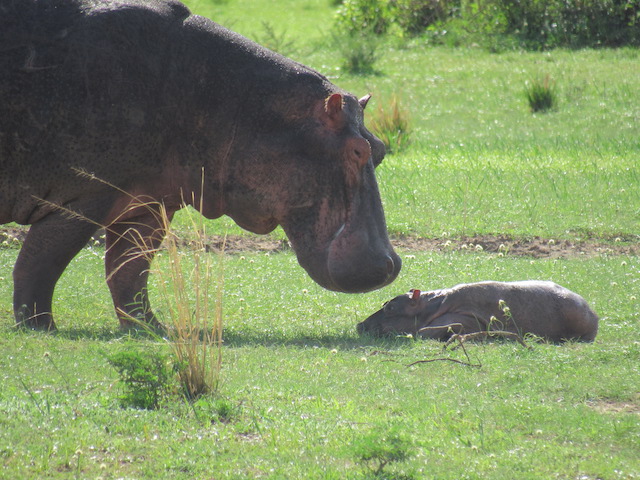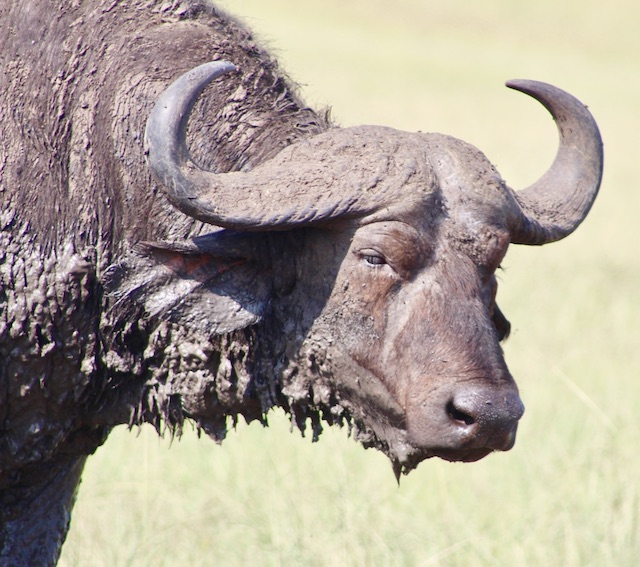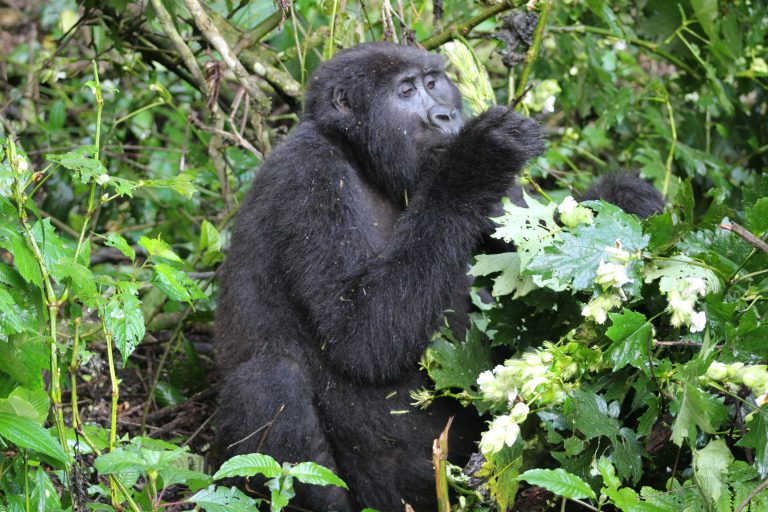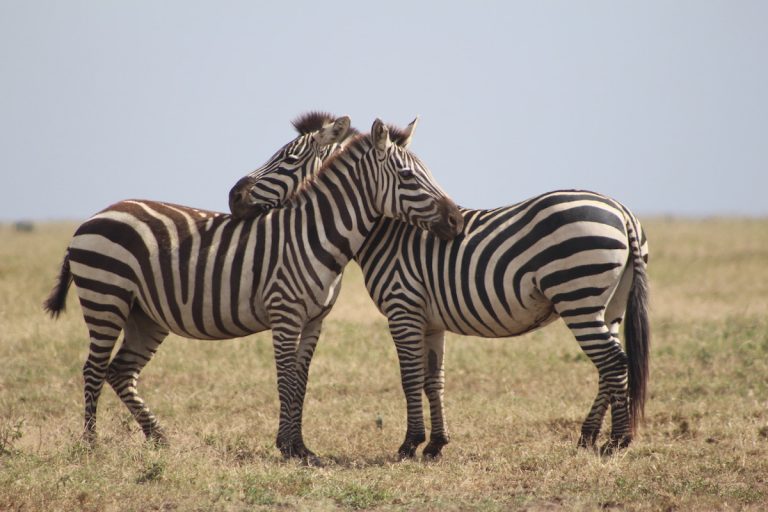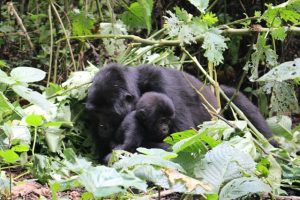 Visit Uganda for the Uganda Big seven – Mountain gorillas, Chimpanzees, Lions, Buffaloes, Leopards, Rhinos and Elephants. We have all probably heard of the famous Big 5 animals as identified by trophy hunters decades ago. For most people who want to come to East Africa for safari, these are certainly their main attraction.
Visit Uganda for the Uganda Big seven – Mountain gorillas, Chimpanzees, Lions, Buffaloes, Leopards, Rhinos and Elephants. We have all probably heard of the famous Big 5 animals as identified by trophy hunters decades ago. For most people who want to come to East Africa for safari, these are certainly their main attraction.
Recently we can say that while on Uganda safari, you can sight not only the Big 5 but with addition of 2 great apes, the Big seven. Here is the list of our Big seven Ugandan style.
MOUNTAIN GORILLAS – Uganda Big Seven
More than half of the remaining endangered Mountain Gorillas are in the Bwindi Impenetrable forest in Uganda. Take a gorilla safari to watch the habituated gorillas in their natural habitat. The gorilla family is lead by a Silverback who is responsible for protection and deciding where they should feed and nest.
CHIMPANZEES – Uganda Big seven
If you want to see chimpanzee in the wild then you want to book a Uganda safari. You can find them in Budogo forest, Kibale forest, Toro-Semliki, Kyambura gorge, Kalinzu forest etc. You can choose between chimpanzee trekking and chimp habituation which is more engaging. They are generally more active than gorillas and will keep you on the move unless you find them resting.
AFRICAN LIONS – Uganda Big Seven
The King of the Jungle likes to strut his large mane as he moves around in his territory. Much as the lion leads the pride, surprisingly it is the lionesses that do the hunting most of the time. In Uganda you can find lions in Kidepo valley national park, Murchison falls national park and Queen Elizabeth national park. Make sure to include these on your visit to Uganda.
CAPE BUFFALOES
Also referred to as the African Buffalo, the Cape Buffalo is an outstandingly sturdy species with mature bulls weighing up to 1000kgs. The Buffaloes often move large herds as a defensive mechanism against predators. The Cape buffaloes can be found in most national parks in Uganda. They feed predominantly on a herbivorous diet. Watch out for the lonely buffaloes that have often been kicked out of the herd because they can be aggressive.
AFRICAN LEOPARD – Uganda Big Seven
Spotted, solitary, elusive, is a perfect description of an African leopard. It is easy to miss this cat while on your Uganda safari because it is often hiding in a tree or in thick shrubs. Besides their spotted skin making them highly adaptable to their surroundings in the wild, they are mostly active at night. In addition to small antelopes which are their preferred food, the leopards often swim and hunt fish. They are found in all the Savannah parks in Uganda but sightings can not be guaranteed.
AFRICAN ELEPHANTS
Identified by their long trunks, a pair of tusks, large floppy ears and a distinctly mammoth size, the African elephant is recognised as the largest land mammal. The adult males can weigh up to 6300kgs, the size of a small bus. In Uganda there exists the African Savanna elephant and the smaller but more destructive African forest elephant.
Their diet comprises grass, leaves, barks and roots which they harvest with their tusks sometimes leaving massive destructions in their wake. Their trunk is mostly used to drink water, like a big straw. Mostly moving in herds led by an older female, they can easily be spotted on game drives. You will sight elephants in Kidepo valley national park, Murchison falls national park and Queen Elizabeth national park. Forest elephants have often been sighted in Bwindi impenetrable national park and Mgahinga gorilla national park.
RHINOCEROS – Uganda Big Seven
Many years ago, Rhinos were roaming in Uganda’s savannah national parks. With political instability, poachers used the opportunity to kill them until the very last of them. Ziwa Rhino Sanctuary in collaboration with the Uganda Wild Authority started the Rhino sanctuary to protect and breed rhinos and hopefully re-introduce them back into the wild.
The rhinos that feature a significantly large head and spot a keratin rich horn on their nose for which they are mostly endangered to poachers. A fully grown adult rhinoceros weights between 1600kg to 2400kg.

